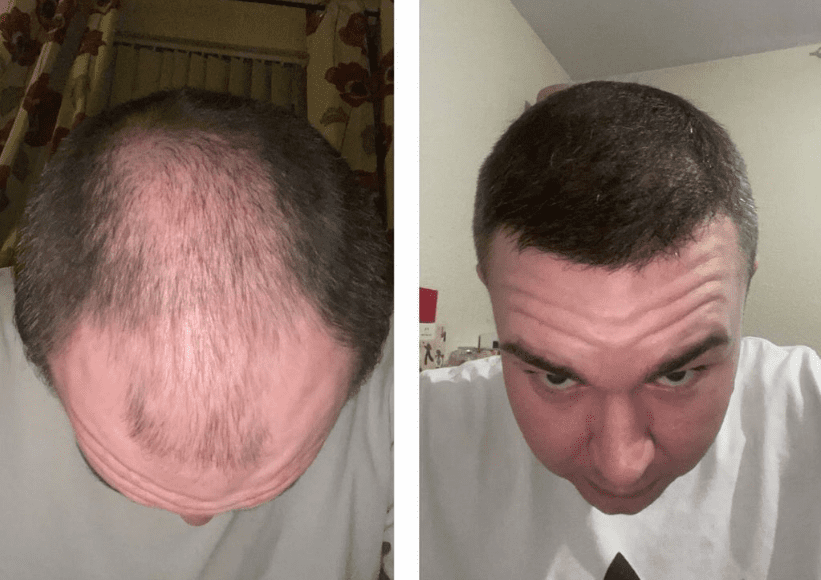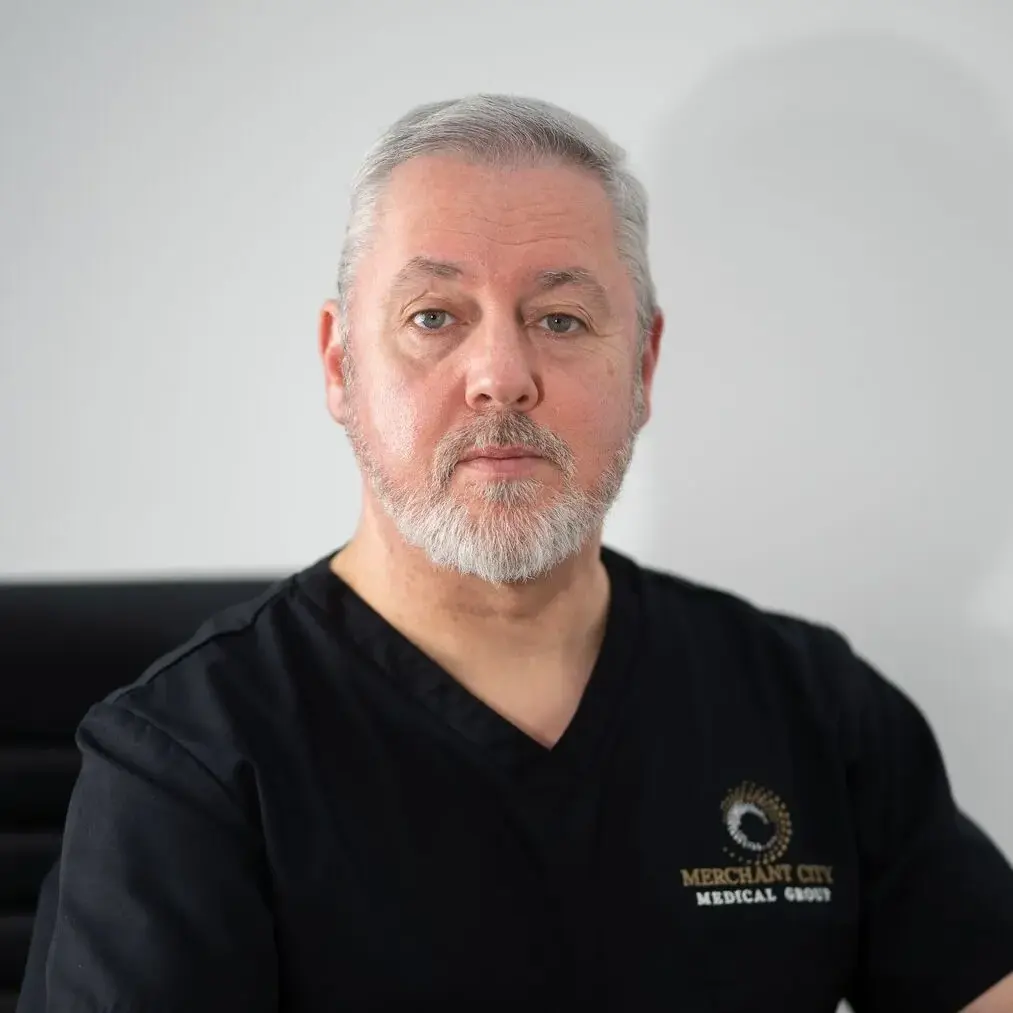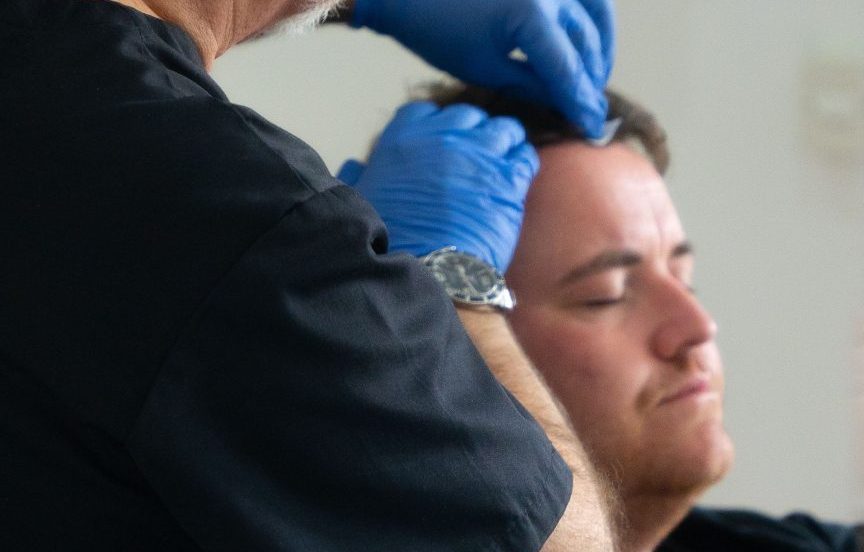
Can A Hair Transplant Treat Thinning Hair?
Can A Hair Transplant Treat Thinning Hair?
Transplant Treat Thinning Hair
Hair transplantation is one of the best ways to tackle thinning hair. Methods like FUE (Follicular Unit Extraction) and FUT (Follicular Unit Transplantation) can restore hair to its original thickness, even if it is long. That’s why they’re so popular for hair restoration. Most of the time, thinning hair is caused by genetics, like male or female pattern baldness. This means if your thinning hair runs in the family, a hair transplant could be just what you need. However, thinning hair can result from various other factors. Hair transplants aren’t always the best solution, so getting an accurate diagnosis is crucial before considering hair restoration surgery. Learn more about when a hair transplant is effective for thinning hair below.
What Causes Hair Thinning
In the early stages, it can be difficult to determine whether your hair is actually thinning or if you are just worried.
Addressing hair loss early can make treatment easier, so if you’re unsure, seek a diagnosis from a hair loss specialist.
The most common causes of thinning hair include:
- Hair loss conditions such as female or male pattern baldness
- Aging, as hair naturally thins over time
- Poor hair care practices, which can damage hair
- Stress and mental health issues, which can trigger stress-induced hair loss


At What Point Do You Consider HairTransplant for Thinning Hair?
It’s important to note that most hair transplants are performed on individuals with androgenetic alopecia, commonly known as male or female pattern baldness. Hair transplants are effective when hair is thinning at the root rather than along the shaft. If you have long hair and observe thinning at the ends but not at the scalp, it’s more likely to be hair breakage than actual thinning.In such cases, a hair transplant is unlikely to be effective.
Hair transplant procedures are generally suitable for the following individuals:
- Those experiencing genetic hair loss
- Individuals needing reconstructive surgery, such as to cover scars
- People looking to fix a previous hair transplant that did not go well
- Transgender individuals seeking gender-affirming hair transplant surgery
How is Hair Transplant Surgery Performed?
Two hair transplant techniques are to consider: FUT (Follicular Unit Transplantation), and FUE (Follicular Unit Extraction).
The ideal technique for you will depend on your hair type, the degree of your hair loss, and your goals for hair restoration in consultation with your hair transplant surgeon.

When is it Best to Get a Hair Transplant for Hair Thinning?
Hair transplants can be a great solution for thinning hair.
However, they should be considered a last resort for treating hair loss.
Depending on the severity of your condition, there may be non-surgical treatments you can try first to promote hair growth.
The Norwood Scale illustrates the progressive stages of genetic hair loss in men, while the Ludwig Scale is used for women.
These diagrams can help you assess the extent of your hair loss.
The Norwood Scale is used to diagnose the stages of hair loss correctly in males.
Hair transplants are usually advised for those who are advanced stage 1 on the Ludwig Scale or at least stage 3 on the Norwood Scale. If your hair loss is not this advanced, other treatments like Minoxidil or Finasteride might be worth trying first. While it can be too early to opt for a hair transplant, delaying it too long can be problematic. If you wait too long, your thinning may progress to a point where achieving the desired coverage becomes difficult, such as in cases of retrograde alopecia.
When is Hair Transplant Not Suitable?
Additionally, very young patients and those who are medically unfit for surgery are also ineligible. If stress or inadequate hair care is the source of your hair thinning, you should be able to resume hair growth after treating the underlying reason. In such cases, a hair transplant is unnecessary, and your hair will likely regrow naturally without surgical interventions.
Some individuals are not suitable candidates for hair transplants, particularly those with the following conditions:

Can Hair Transplant Fix Hair Breakage Problems?
Many hair treatments and styling practices contribute to hair breakage around the crown and hairline. In fact, 40% of individuals who underwent chemical hair straightening reported that their hair became thinner and weaker afterward. Common practices, such as blow-drying and using hair straighteners and curlers, can also cause bulges, dents, and thinning of the hair strands. If your hair is thinning at the ends but remains healthy at the roots, consider visiting your hairdresser for a haircut to create a thicker and healthier appearance. Additionally, avoid heat styling to maintain your newly trimmed, healthy hair.





Are There Other Alternatives to Fix Hair Thinning?
The success of these treatments varies depending on the root cause, the extent of your hair loss, and your response to the treatment. If these treatments don’t work or if you want further improvement in your thinning areas, a hair transplant might be the best option.
- Minoxidil: It is a popular, topical, over-the-counter product applied to the scalp twice daily.
- DHT Blockers: Oral medications that can slow or prevent genetic hair loss in men, such as Finasteride, Dutasteride, or natural DHT blockers.
- Spironolactone: An oral medication used to treat female pattern hair loss, especially in women with hair loss related to polycystic ovary syndrome.
- Essential Oils for Hair Loss: Clinical experiments on essential oils have yielded encouraging outcomes on hair growth.
- Vitamin E: The only hair growth supplement proven to help restore hair in individuals without a vitamin deficiency.
The Bottom Line
In conclusion, addressing hair thinning requires careful consideration of various treatment options. While non-surgical treatments like Minoxidil, DHT blockers, Spironolactone, essential oils, and Vitamin E can offer significant benefits, a hair transplant remains the most definitive solution for many.
If you’re experiencing hair thinning and are considering a hair transplant, Merchant City Medical Group is your top choice in the UK and Europe. Our clinic specializes in Follicular Unit Extraction (FUE) and offers free consultations and affordable services to help you achieve the best possible results.
Contact us today to schedule your free consultation and take the first step towards restoring your hair and confidence.


